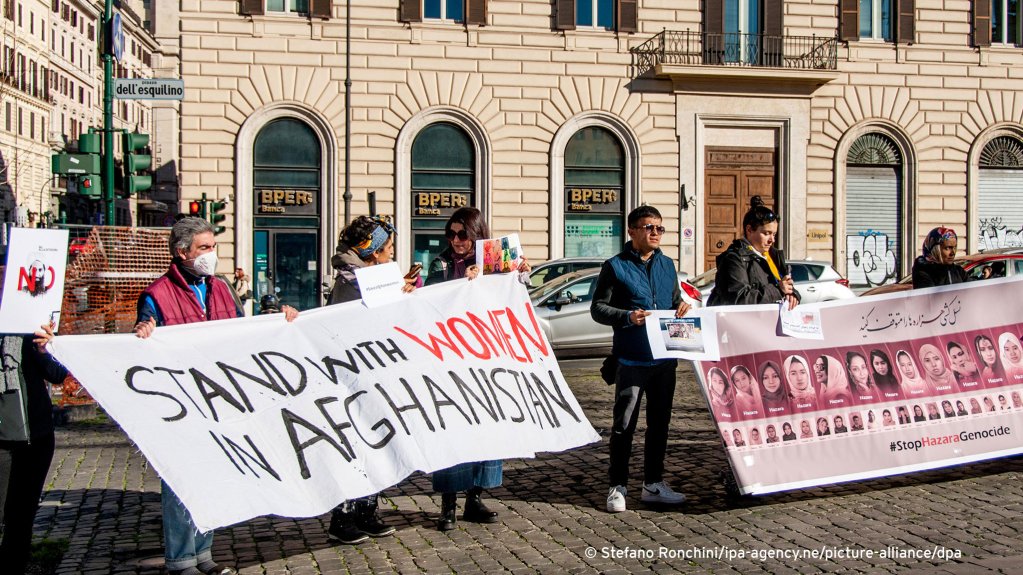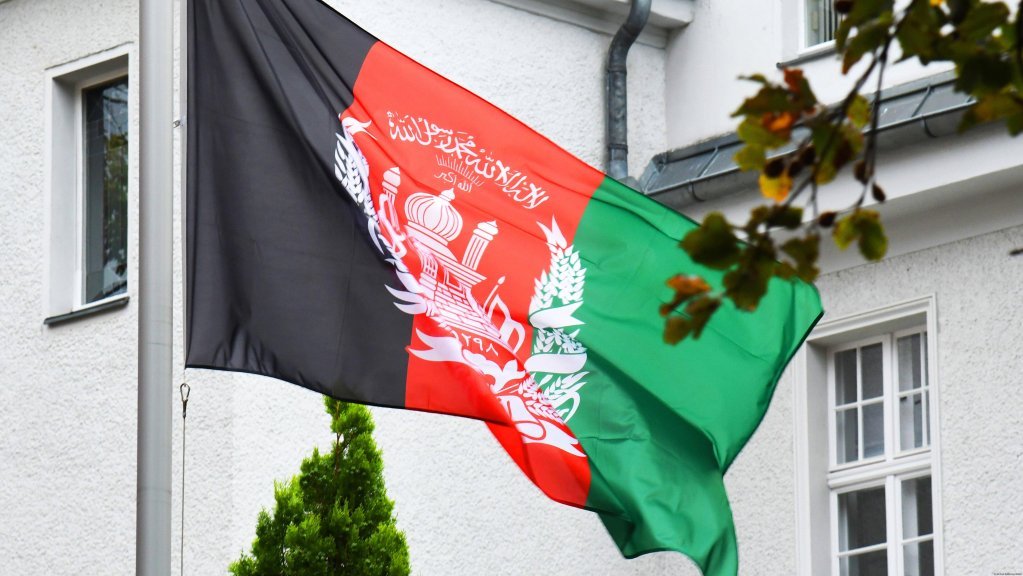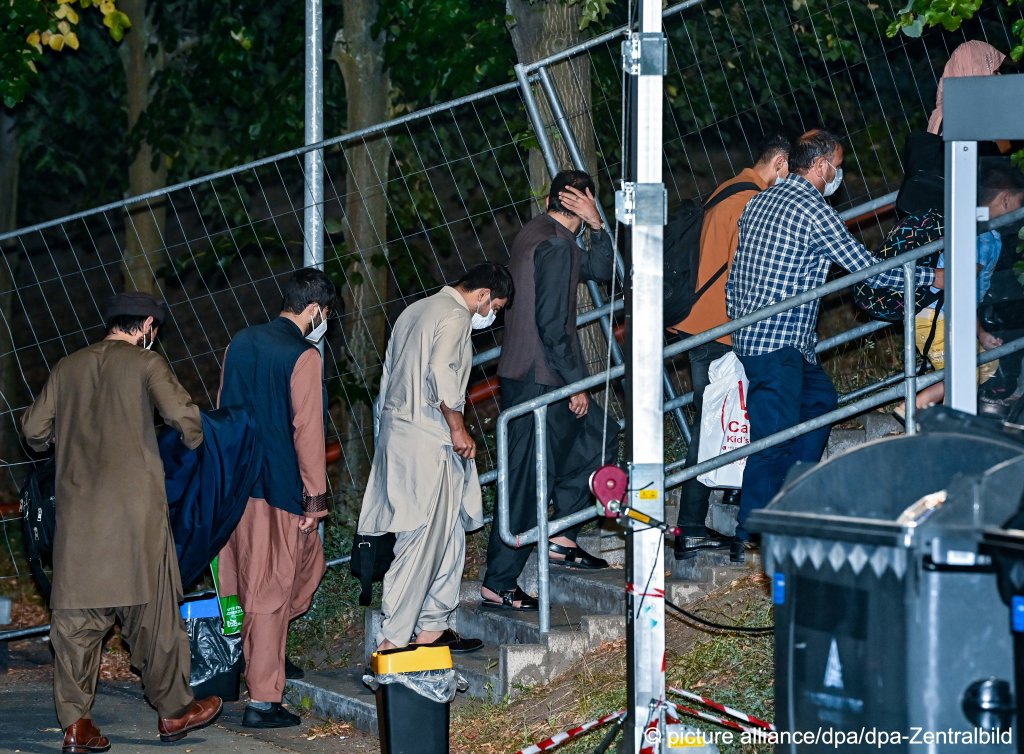So far, only six journalists from Afghanistan have managed to successfully enter Germany using a government program designed to protect particularly vulnerable individuals in the media.
Only six Afghan journalists have so far managed to enter Germany under a government reception program for particularly vulnerable people, Reporters Without Borders (RSF) reported on Monday.
According to RSF, a total of 62 Afghan media professionals -- plus their family members -- have so far submitted cases for admission via the program.
Three years after the Taliban take over by force in the capital Kabul, the situation has become desperate for many Afghan journalists as the country continues to be plagued by extreme poverty, violence, human rights violations and other forms of repression.
"Working as a journalist, especially if you are a woman, is the riskiest and most dangerous job you can do under Taliban rule," RSF quotes an Afghan journalist as saying.
The woman did not want to give her name for fear of reprisals, the advocacy group said, adding that she reportedly is one of many who has submitted her documents to the German authorities and is still awaiting approval.

Women have been prevented from taking part in the workforce by the Taliban, with severe consequences for Afghanistan's economy, which already is the poorest country in Asia.
Despite the Taliban promising it would allow women and girls to participate in formal education, they later imposed a ban on schooling.
June 14, marked 1,000 days since the Taliban banned girls from attending education beyond primary school.
Also read: German government takes 3,000 Afghans via admissions program
Complicated application process
According to the German foreign office, the program is designed for Afghan nationals who face significant risks, including human rights activists and individuals who previously worked in justice, politics, media, education, culture, sports, or academia.
This is in addition to groups highly vulnerable to violence or persecution due to gender, sexual orientation, gender identity or religion.

The Federal Admission Program for Afghanistan (BAP), however, involves a complex and highly bureaucratic 12 step process, which has been slow in granting admissions -- despite the ongoing urgent need to protect at-risk Afghans.
The biggest drawback is the fact that applicants cannot apply directly -- instead, selected organizations in Germany, which are registered as "authorized reporting centers" for the program, must submit applications on their behalf, making access to the program difficult.
RSF points out that this can make it very complicated for those affected to access the program, as they typically don't eve know which NGO to contact. Still, since the introduction of BAP, approximately 100,000 requests for assistance have been received by these authorized reporting centers.
Bureaucratic hurdles
The process involves multiple stages of verification, including plausibility checks, detailed questioning via an IT tool, and security interviews held in Pakistan.
One of the major limitations is that only those currently residing in Afghanistan are eligible for the program, who will then still have to travel to Pakistan as part of the process.
This requirement creates serious challenges for those at extreme risk, as it can expose them to Taliban attacks and often forces them into hiding. Some are also unable to afford the journey amid the current economic situation in the country.
Despite the urgent need for protection, the program has therefore been slow to implement, with only a small number of admissions granted so far.
Critics says this reflects the program's inefficiency in meeting its goal of swiftly resettling those in danger.
Also read: Who is eligible for Germany's Afghanistan reception program?
Uncertain future
However, the future of the program -- which has helped around 540 particularly vulnerable Afghans and their relatives to come to Germany in total so far (including 6 journalists) -- remains uncertain.
The German government has confirmed that a total of 3,000 individuals have been invited to Germany under the special admissions program aimed at protecting those at risk under Taliban rule, such as human rights activists and professionals from various sectors.
But tens of thousands of others are yet to be processed. In order to help those who are still waiting, the German government is hoping to process open applications more quickly and increase the number of staff in Pakistan who are responsible for conducting security checks on applicants.

However, despite plans to upscale capacities to a rate of eventually admitting 1,000 people monthly, the program is facing potential budget cuts.
Human rights organizations, such as Amnesty International and Pro Asyl, have expressed concern that these cuts could jeopardize the safety of thousands of people remaining in danger in Afghanistan.
Afghanistan is one of the main countries of origin for asylum seekers arriving in Germany without proper immigration papers. Due to the high rate of arrivals of such irregular refugees, politicians in the federal government have shown decreasing support for bringing more individuals to Germany through the special admissions program in recent months.
Also read: 191 Afghan refugees arrive in Italy with humanitarian corridors
Deportation debate
Although Germany has banned deportations to Afghanistan since the Taliban takeover in 2021, the government is exploring options to resume deportations without engaging the Taliban directly.
This follows ongoing debates about deporting Afghan criminals amid pressure from right-wing parties like the AfD (Alternative for Germany) to implement a zero-tolerance policy on individuals who could be deemed a threat to society.
Calls to reconsider deportations to Afghanistan have particularly resurfaced after a fatal stabbing by an Afghan man in Mannheim.

German Chancellor Olaf Scholz recently advocated in parliament the deportation of serious criminals and individuals deemed a threat -- even to unsafe countries like Afghanistan and Syria, saying that "in such cases, Germany's security interests outweigh the protection interests of the offender."
The Federal Ministry of the Interior is currently negotiating with Afghanistan's neighboring countries regarding the practical implementation of such deportations.
Pro Asyl criticized the government's stance on deportations, stating that "given the catastrophic human rights, humanitarian, and security situation, deportations to Afghanistan are out of the question. It is, therefore, deeply concerning when ministers ... demand exactly that."
The NGO noted that criminals must serve their sentences in Germany, stressing that any "security assurances" provided by the Taliban for those to be deported are "neither trustworthy nor reliable, and cannot legitimize a deportation that violates human rights."
In June, a report by the German publication Der Spiegel revealed that German lawmakers were in talks with Uzbekistan to deport Afghan nationals via the capital, Tashkent, avoiding direct negotiations with the Taliban. Uzbekistan is seeking a migration agreement with Germany in exchange for facilitating these deportations.
Also read: Deportations of Afghans via Tashkent under review by German lawmakers, report
With dpa
